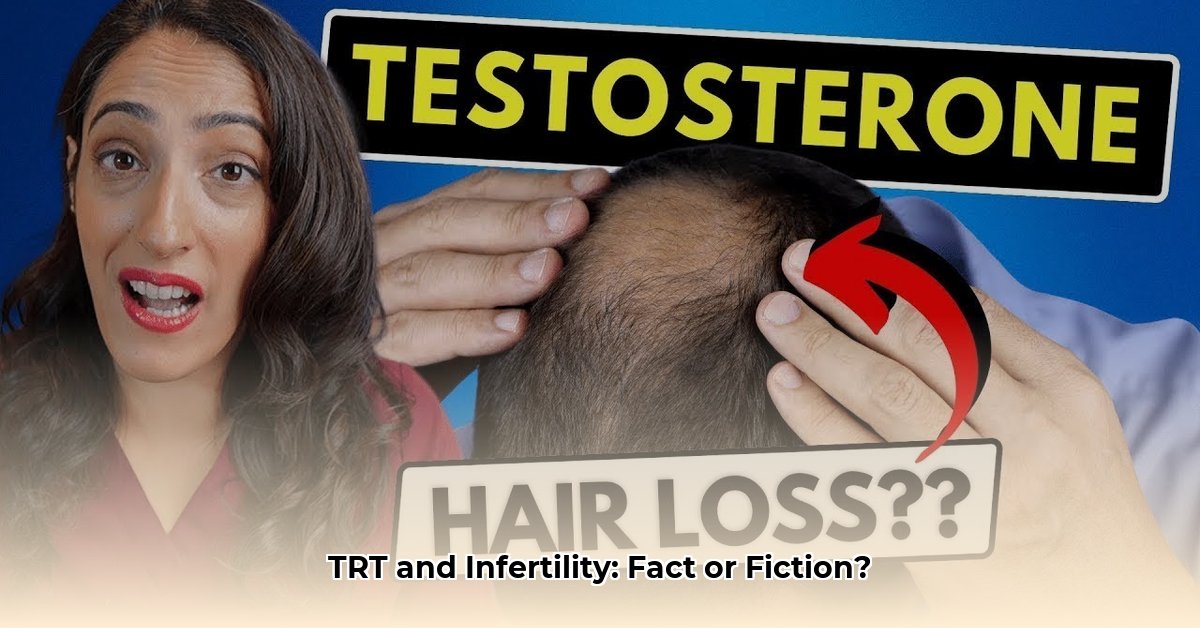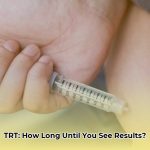Understanding TRT and its Impact on Fertility
Thinking about testosterone replacement therapy (TRT) but worried about future family plans? You’re right to consider the potential impact on your fertility. This guide provides a comprehensive overview of TRT and its effects on sperm production, exploring options for preserving fertility, and addressing common concerns.
How TRT Influences Sperm Production
TRT introduces external testosterone, disrupting the body’s natural hormonal balance. The hypothalamic-pituitary-gonadal (HPG) axis, which regulates testosterone and sperm production, senses the elevated testosterone levels. This can lead to a decrease in the production of luteinizing hormone (LH) and follicle-stimulating hormone (FSH), essential messengers that stimulate the testes to produce sperm. Consequently, sperm production may slow down or even cease, potentially leading to low sperm count (oligospermia) or absence of sperm (azoospermia). The extent of this impact varies based on factors like TRT dosage, duration of use, and individual physiology.
Is TRT’s Impact on Fertility Reversible?
The encouraging news is that TRT’s effect on sperm production is often reversible. Discontinuing TRT typically allows the HPG axis to regain its natural rhythm, leading to a resumption of sperm production. However, recovery is not instantaneous and can take several months, sometimes even years. Factors influencing recovery time include age, duration of TRT use, and dosage. While many men experience a full recovery, there’s a possibility of incomplete recovery, particularly after prolonged TRT use, though this is less common.
Preserving Fertility While Using TRT
If you’re considering TRT but also wish to preserve your fertility, several options exist:
-
Human Chorionic Gonadotropin (hCG): hCG mimics LH’s function, stimulating testosterone production in the testes and potentially maintaining sperm production even during TRT.
-
Clomiphene Citrate (Clomid): This medication encourages the pituitary gland to release more LH and FSH, supporting sperm production. Sometimes, a combination of hCG and Clomid is used.
-
Sperm Banking: This involves freezing and storing sperm before starting TRT, providing a secure backup for future conception regardless of TRT’s effects.
TRT Alternatives and Lifestyle Adjustments
TRT isn’t the sole solution for low testosterone. Alternatives include:
-
Lifestyle Modifications: Improvements in diet, exercise, and stress management can sometimes positively influence testosterone levels.
-
Alternative Hormone Therapies: Other hormonal treatments might prove suitable depending on individual circumstances.
-
Supplements: While some supplements claim to boost testosterone, their efficacy and safety vary. Consulting a doctor before using any supplement is crucial.
It’s important to discuss these alternatives with your doctor to determine the most appropriate approach for your specific situation.
Seeking Professional Guidance
Navigating the complexities of TRT and fertility requires expert guidance. A reproductive endocrinologist or urologist specializing in male infertility can provide personalized advice, monitor hormone levels and sperm count, and help you develop a tailored plan to protect your reproductive health.
Frequently Asked Questions
-
Is infertility from TRT inevitable? No. While a significant risk, the likelihood and severity of infertility vary among individuals.
-
How long does fertility recovery take post-TRT? Recovery time varies, typically ranging from several months to a few years. Some individuals may experience incomplete recovery. Ongoing research is exploring these varying outcomes.
-
Should I consider TRT while trying to conceive? If actively trying to conceive, it’s generally recommended to postpone TRT. Consult a fertility specialist to explore safer alternatives and assess potential impacts on your family planning goals.
Important Considerations
-
Ongoing Research: Current medical understanding of TRT’s impact on fertility is continually evolving. Some research suggests genetic factors may play a role, influencing individual responses to TRT.
-
Individual Variability: While general patterns exist, individual responses to TRT can be unpredictable. Factors such as age, genetics, dosage, and duration of use contribute to this variability.
-
Open Communication with Your Doctor: Honest and open communication with your doctor is paramount. Discuss your family planning goals, concerns about fertility, and any other health issues.
Disclaimer
This information is for educational purposes only and does not constitute medical advice. Always consult a qualified healthcare professional for any health concerns or before making any decisions related to your health or treatment. They can provide personalized guidance based on your unique circumstances.
- Best Mindfulness Books for Anxiety, Sleep, and Daily Peace - January 29, 2026
- Books On Mindfulness For A Happier, More Present Life - January 28, 2026
- Essential Meditation Books for Beginners and Experienced Practitioners - January 27, 2026
















